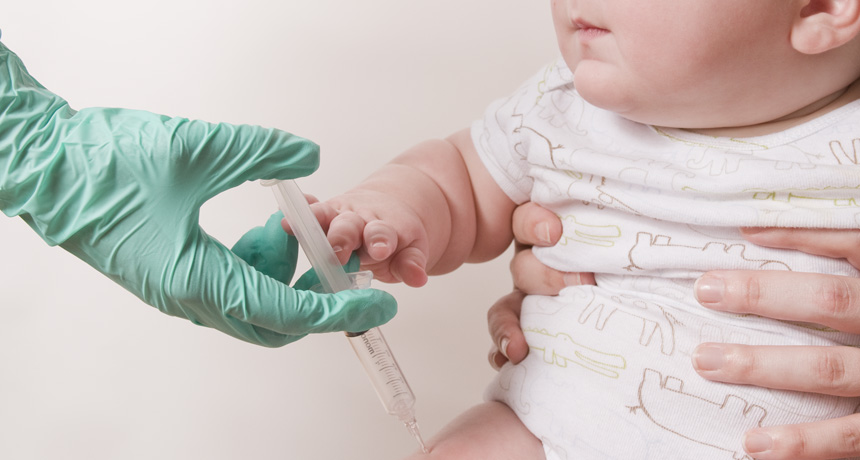Year in Review: Putting kids at risk
Parents lax on vaccinations

Parents frequently put off vaccines for babies even though doctors warn it can place the children at risk of illness, a new survey finds.
AMANDA MILLS/CDC
11
The tenet that “doctor knows best” is taking a beating. U.S. parents increasingly are delaying their children’s vaccinations, basing such decisions on sources other than their pediatricians, researchers reported in 2013. Nearly half of U.S. babies born from 2004 to 2008 fell behind on at least one vaccination (SN: 2/23/13, p. 11).
Many parents cite concerns about the 23 shots babies now get in the first two years of life, says epidemiologist Jason Glanz of Kaiser Permanente in Denver. “You can see the parents’ perspective,” he says.
Vaccination schedules have been fine-tuned to protect children at a vulnerable age, doctors point out, but they can’t force the issue. Glanz and colleagues examined the records of 320,000 kids under age 2, finding that 49 percent got at least one shot more than a month late. That proportion has been rising for five years. Overall, 20 percent of kids spent more than 100 days unprotected against a disease because of late shots.
Vaccine fears arose over a decade ago when some people blamed shots for health problems, claims later shown to be unfounded. A 2013 study debunked more recent claims that vaccination can cause Guillain-Barré syndrome, a nerve-damaging disorder. A review of 3 million people in the Kaiser database showed no connection between the disorder and getting any vaccine (SN: 7/27/13, p. 16).
Putting off shots might be grounded in parents’ desire to make safe choices for their child, say University of Pennsylvania physicians Kristen Feemster and Paul Offit, writing in JAMA Pediatrics in October. But in reality, “it offers no clear benefit,” they say. Such parents may be well-meaning, but in this case doctors really may know best.







